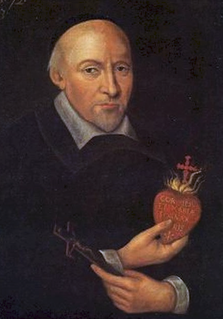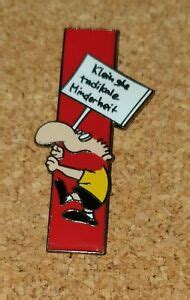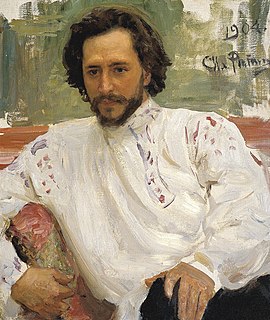A Quote by David Berman
Suppose one who had always continued blind be told by his guide that after he has advanced so many steps he shall come to the brink of a precipice, or be stopped by a wall; must not this to him seem very admirable and surprising? He cannot conceive how it is possible for mortals to frame such predictions as these, which to him would seem as strange and unaccountable as prophesy doth to others. Even they who are blessed with the visive faculty may (though familiarity make it less observed) find therein sufficient cause of admiration.
Quote Topics
Admirable
Admiration
Advanced
After
Always
Blessed
Blind
Brink
Cannot
Cause
Come
Conceive
Doth
Even
Faculty
Familiarity
Find
Frame
Guide
Had
Him
His
How
Less
Make
Many
May
Mortals
Must
Observed
Others
Possible
Precipice
Predictions
Seem
Shall
Steps
Stopped
Strange
Sufficient
Suppose
Surprising
Though
Very
Wall
Which
Would
Related Quotes
All the delights of sense, or heart, or intellect, with which you could once have tempted him, even the delights of virtue itself, now seem to him in comparison but as the half nauseous attractions of a raddled harlot would seem to a man who hears that his true beloved whom he has loved all his life and whom he had believed to be dead is alive and even now at his door.
If only mortals would learn how great it is to possess divine grace, how beautiful, how noble, how precious. How many riches it hides within itself, how many joys and delights! No one would complain about his cross or about troubles that may happen to him, if he would come to know the scales on which they are weighed when they are distributed to men.
After I had been studying with him for two years, Schoenberg said, ‘In order to write music, you must have a feeling for harmony.’ I explained to him that I had no feeling for harmony. He then said that I would always encounter an obstacle, that it would be as though I came to a wall through which I could not pass. I said, ‘In that case I will devote my life to beating my head against that wall.’
He that doth righteousness; that is, righteousness which the gospel calleth so, is righteous; that is, precedent to, or before he doth that righteousness. For he doth not say, he shall make his person righteous by acts of righteousness that he shall do; for then an evil tree may bear good fruit, yea, and make itself good by doing so; but he saith, He that doth righteousness is righteous; as he saith, He that doth righteousness is born of him.
We know when we are following our vocation when our soul is set free from preoccupation with itself and is able to seek God and even to find Him, even though it may not appear to find Him. Gratitude and confidence and freedom from ourselves: these are signs that we have found our vocation and are living up to it even though everything else may seem to have gone wrong. They give us peace in any suffering. They teach us to laugh at despair. And we may have to.
We must carry the war into every corner the enemy happens to carry it, to his home, to his centers of entertainment: a total war. It is necessary to prevent him from having a moment of peace, a quiet moment outside his barracks or even inside; we must attack him wherever he may be, make him feel like a cornered beast wherever he may move. Then his moral fiber shall begin to decline, but we shall notice how the signs of decadence begin to disappear.
The fact would seem to be, if in my situation one may speak of facts, not only that I shall have to speak of things of which I cannot speak, but also, which is even more interesting, but also that I, which is if possible even more interesting, that I shall have to, I forget, no matter. And at the same time I am obliged to speak. I shall never be silent. Never.
O admirable Mother of God! How many sins have I committed for which thou hast obtained pardon for me, and how many others would I have committed if thou hadst not preserved me? How often have I seen myself on the brink of Hell in obvious danger of falling into it but for thy most benign hand which saved me? How often would the Roaring Lion of Hell have devoured and swallowed up my soul had not the charity of thy heart opposed him? Alas! Without thee, my dearest and my all-good Mother, where should I be today? I should be in the fiery furnace of Hell from which I would never emerge!
There is an earthly sun, which is the cause of all heat, and all who are able to see may see the sun; and those who are blind and cannot see him may feel his heat. There is an Eternal Sun, which is the source of all wisdom, and those whose spiritual senses have awakened to life will see that sun and be conscious of His existence; but those who have not attained spiritual consciousness may yet feel His power by an inner faculty which is called Intuition.
That is the purpose for which you are called hither. Called, is say, though I have not called you to me, strangers from distant lands. You have come and are here met, in this very nick of time, by chance as it may seem. Yet it is not so. Believe rather that it is so ordered that we, who sit here, and none others, must now find counsel for the peril of the world.
If, therefore, man has come into the world to search for God and, if he has found Him, to adhere to Him and to find repose in adhering to Him-man cannot search for Him and attain Him in this sensible and corporeal world, since God is spirit rather than body, and cannot be attained in intellectual abstraction, since one is able to conceive nothing similar to God, as he asserts-how can one, therefore, search for Him in order to find Him?
I can never know beforehand how God’s image should appear in others. That image always manifests a completely new and unique form that comes solely from God’s free and sovereign creation. To me the sight may seem strange, even ungodly. But God creates every man in the likeness of His Son, the Crucified. After all, even that image certainly looked strange and ungodly to me before I grasped it.
Westley closed his eyes. There was pain coming and he had to be ready for it. He had to prepare his brain, he had to get his mind controlled and safe from their efforts, so that they could not break him. He would not let them break him. He would hold together against anything and all. If only they gave him sufficient time to make ready, he knew he could defeat pain. It turned out they gave him sufficient time (it was months before the Machine was ready). But they broke him anyway.
Born, the Man assumes the name and image of humanity, and becomes in all things like unto other men who dwell upon the earth. Their hard lot becomes his, and his, in turn, becomes the lot of all who shall come after him. Drawn on inexorably by time, it is not given him to see the next rung on which his faltering foot shall fall. Bounded in knowledge, it is not given him to foretell what each succeeding hour, what each succeeding minute, shall have in store for him. In blind nescience, in an agony of foreboding, in a whirl of hopes and fears, he completes the cycle of an iron destiny.




































